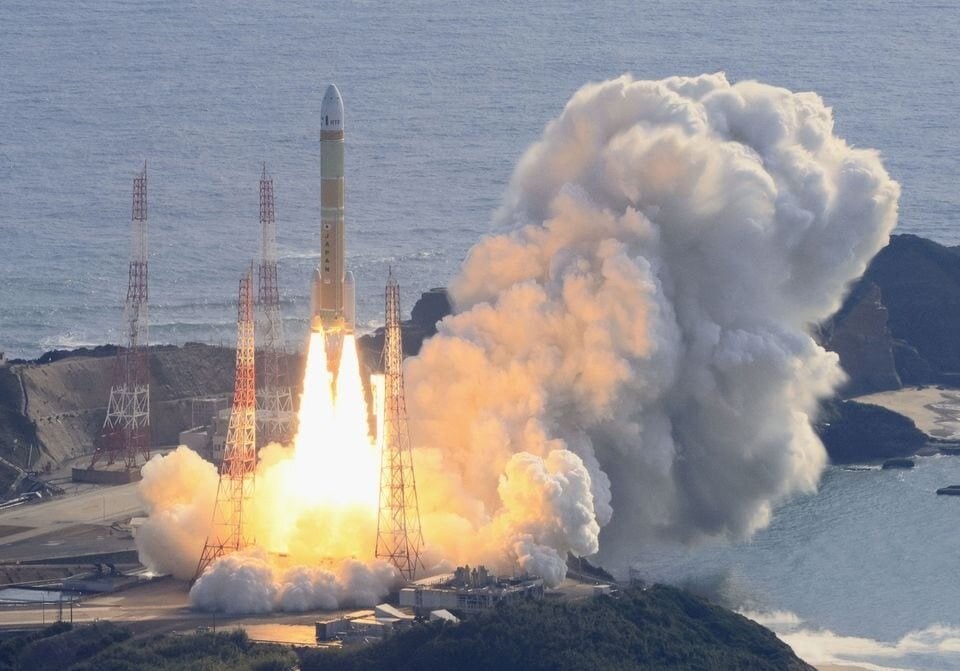
Japan's new attempt to move forward with the launch of its space program's new flagship rocket, the H3, was crowned with success on Saturday, February 17, a development that put Japan's space program back on track after a series of unfortunate results, including the maiden flight of this public rocket. the past.
The launch marks the second major success in a row for the Japan Aerospace Exploration Agency (JAXA), following last month's expensive, if adventurous, lunar landing of the SLIM probe, making Japan only the fifth country to successfully field a spacecraft. to the moon.
Although Japan is considered a relatively small “player” in space exploration, using the number of successful launches as a rating metric, the easternmost country has sought to boost its space program as it works with the United States in an attempt to stave off Chinese ambitions. Moves.
The H3 took off at 9:22 AM. local time (2:22 a.m. Greek time) after successfully placing a small satellite into orbit for the first time, scientists monitoring the mission's progress from the Tanegashima Space Center in southern Japan erupted in applause, celebrations and hugs.
During its roughly two-hour flight, the rocket also launched a small satellite as well as a satellite dummy.
At the same time, Masashi Okada, head of the Japan Aerospace Exploration Agency's ten-year rocket development program, said during a press conference that he is happy that preparations for the third H3 launch begin immediately.
The H3 is intended to replace the H-IIA, which already has two decades of service and is scheduled to retire after two more launches. Any further failed attempts to launch H3 will force Japan to face the possibility of losing independent access to space.
The first attempt, in March 2023, was terminated when the control center had to activate the rocket's self-destruct mechanism 14 minutes after liftoff when the second stage engine failed to fire. The Japan Aerospace Exploration Agency focused on three possible electrical faults in a report it issued in October, but was unable to determine the cause with absolute certainty.
Five months later, the smaller Epsilon rocket, also being developed by the Japan Aerospace Exploration Agency, failed to lift off.
The 63-meter-long H3 is designed to carry a payload of 6.5 metric tons, and in the long term, JAXA aims to keep the launch cost low, even to 31 million euros, half the cost of launching the H3. — IIA- Implementation of simpler structures and automated electronic systems, similar to those used in the automobile industry.
Both the Japan Aerospace Exploration Agency and its prime contractor, Mitsubishi, hope the H3's operational capabilities, combined with its relatively low operating costs, will help attract international interest, and thus contracts.
Meanwhile, the Japanese government plans to launch about 20 satellites and research ships using H3 rockets by 2030 for domestic use. H3 is scheduled to be used in 2025 to send a probe to the Moon as part of the LUPEX programme, a partnership between Japan and India, and in the future will carry cargo for the US-led Artemis programme. It aims to explore the moon and then Mars.
Demand for satellite launches has risen dramatically, thanks to the emergence of affordable commercial rockets such as Space European Space Agency.
-
1
-
1

“Total alcohol fanatic. Coffee junkie. Amateur twitter evangelist. Wannabe zombie enthusiast.”






More Stories
to caution! If you have these three apps on your mobile phone, delete them immediately – they empty bank accounts!
What does Google change in the search engine?
Microsoft has decided the future of Call of Duty